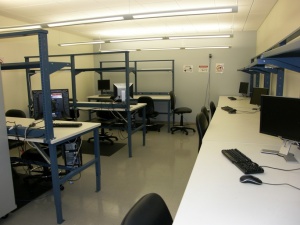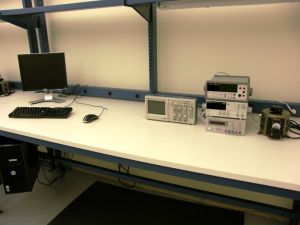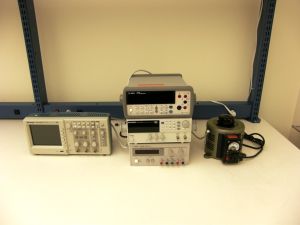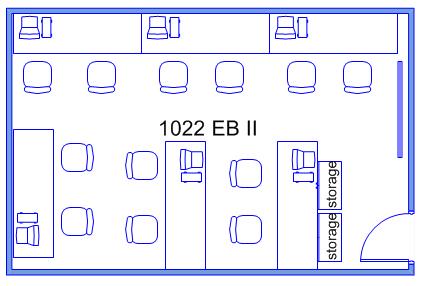Difference between revisions of "Teaching Labs/1022 EB2"
| Line 11: | Line 11: | ||
| − | {{# | + | {{#tag:iframe|key="local"|path="calendar/u/0/embed?src=ncsu.edu_abtc7857ftbm1gbgummq7gt4uk@group.calendar.google.com&ctz=America/New_York"}} |
| − | | | + | |
| − | |||
| − | |||
| − | |||
| − | |||
| − | |||
| − | |||
| − | |||
| − | }} | ||
Latest revision as of 11:00, 8 August 2022
Power Electronics Lab
The Power Electronics Lab provides six stations for students to work in teams, each consisting of a large high-quality workbench with overhead storage and a dedicated computer workstation. Each station provides an oscilloscope, multimeter, power supply, and function generator, and two storage cabinets provide space to store equipment and materials for projects and classes. The lab also contains additional equipment that is currently found only in the Power Electronics lab, such as variable autotransformers and dynamometer kits.
Classes in the Power Electronics lab deal with the principles and devices necessary for providing power to machinery and electronics found in our modern world. Topics range from basic direct-current and alternating-current machinery to components of a power system, including circuit breakers and fuses. More advanced courses discuss semiconductor and solid-state devices as well as the development of renewable energy systems. Students will utilize equipment and software to perform calculations and simulations of device performance and system power flow.
Lab Schedule
The schedule is subject to change at anytime, so check back often. To schedule this lab, email ecehelp@ncsu.edu.
Related Research Areas
Course Information
Equipment
Number of Computers:
|
Operating System:
| |||
Model:
|
Processor:
|
RAM:
|
Software:
|
Instruments:
|



